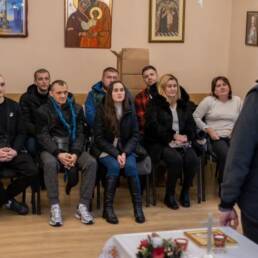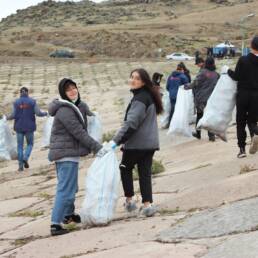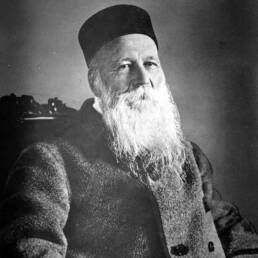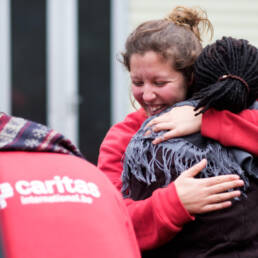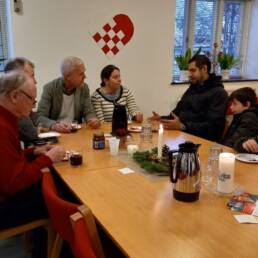Author
Francisco Prat
Formation-Training Coordinator
Caritas Spain
Eco-social crisis
‘We are faced not with two separate crises, one environmental and the other social, but rather with one complex crisis which is both social and environmental’ (LS 139). We know this sentence from Laudato Si’ by heart. We have internalized, with the impulse of the Encyclical, the intimate connection between Creation and creatures, between Mother Earth and the lot of the poor. Caring for the environment is not just a green attitude but a social one.
We know that environmental degradation and the deterioration of people’s living conditions have the same root: a development model based on economic growth and consumerism, which causes overexploitation of the planet and polarization of inequalities. Environmental degradation and poverty are two sides of the same coin: an unfair and predatory system that places the economic benefit and well-being of a minority above the rights and decent living conditions of the majority.
Ecology is not a passing fad for Caritas. For us it is a matter of faith and justice. Of faith, because fidelity to God is also fidelity to his Creation. Of justice, because those who suffer the most from the consequences of the ecological crisis are the poor.
The root cause of the deep crisis we are suffering, Pope Francis points out, is within the human being. This crisis has a human root, in the fundamental orientation not only of the economy or of politics but of life and human action (LS 109). It is a crisis of what it means to live as human beings. Therefore it is a spiritual crisis.
Integral ecology
We as human beings and as Catholics are called to put our efforts in promoting ‘a new way of thinking about human beings, life, society and our relationship with nature.’ (LS 215). We are committed to each human being recovering his or her true place in the universe, renouncing the desire to dominate it; We want to generate a new vision that allows for the restoration of ‘the various levels of ecological equilibrium, establishing harmony within ourselves, with others, with nature and other living creatures, and with God.’ (LS 210).
As integral ecology is based on the fact that ‘everything in the world is connected’ (LS 16), it requires a dialogue between different dimensions: environmental, economic, social and cultural. In addition, it considers the principles of the Common Good and Justice between current and future generations. The caring for nature and solidarity with the impoverished of the earth are closely connected (Amazon Synod Message 66).
Ecological conversion: a new way of life
A people’s ecological conversion means that ‘the effects of their encounter with Jesus Christ become evident in their relationship with the world around them.’ God calls us to live the vocation of being protectors of Creation.
Living our vocation to be protectors of God’s handiwork is essential to a life of virtue; it is not an optional or a secondary aspect of our Christian experience.
Pope Francis, Laudato Si’ 217
Ecological conversion is a call to change our vision of ourselves, of our brothers and sisters and of the world. From this change of mind set a new way of being in the world and of acting is born (LS 215). The challenge we are facing is not only of doing, but also of being. It is not possible to change the way of life without an authentic spirituality.
This conversion starts by gratitude. The change of habits and patterns of behaviour, production and consumption will not start only by reading precise scientific reports, or by a better knowledge of the threats to our planet, but with a basic attitude: gratitude, ‘that is, a recognition that the world is God’s loving gift, and that we are called quietly to imitate his generosity in self-sacrifice and good works.’ (LS 220).
Ethics of care as a meeting point
Spirituality of creation is a spirituality of care. Care is the attitude of respect and concern for the weak and fragile life, a true paradigm of relationship with others, with the Earth, with our brothers and sisters. All Christians are called to care for the fragility of people and of the world in which we live, generating a culture of care.
Caritas action is essentially caring. Our care takes place in three ways: an accompaniment that counts on the possibilities and capacities of people, community building, and a committed fight for justice.
Ethics of care as a civil Ethic can also be a meeting point with non-believers and brothers and sisters of other religions. We all come together in a common ethical effort caring for vulnerable life.
That ethical effort inspires the climate summits. In the words of the Pope, the COP26 in Glasgow ‘represents an urgent summons to provide effective responses to the unprecedented ecological crisis and the crisis of values that we are presently experiencing, and in this way to offer concrete hope to future generations. We want to accompany it with our commitment and our spiritual closeness’.


